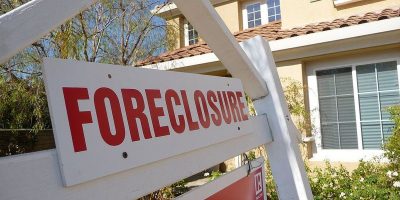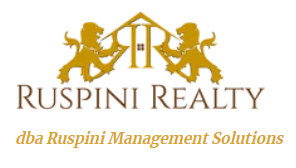How to Buy a Foreclosed House

Interested in purchasing a foreclosed house? Houses in foreclosure can be a great deal for renovators, since you can often get a great deal on a property that you were intending to flip anyway. But the process of how to buy a foreclosed house isn’t quite the same as the process of purchasing a traditional house. It’s important that you understand the right way to go about it early on so that you don’t waste a significant amount of time or money heading in the wrong direction.
Buying a Foreclosed Home vs. Buying a Standard Home
Well before you get to showings and offer letters there are various key contrasts that you’ll have to comprehend about purchasing a home in dispossession as opposed to purchasing a standard home available to be purchased. Here’s a quick breakdown:
You won’t be able to negotiate any repairs. It’s banks, not homeowners, who are trying to offload a foreclosed property—and they’re not known for budging when it comes to negotiating home repairs. Most of the time, when you buy a foreclosed home you’re buying it “as is,” meaning all of its good parts and its bad parts. If you’re buying the home to flip, you’ll need to make sure that you have a very thorough inspection performed so that you know what you need to budget for in terms of fixes.
But you may be able to negotiate price. Don’t assume that just because a bank isn’t flexible with incentives and contingencies that they’re not going to be flexible with price. The goal for most banks in this situation is to come out in the black on the property, and not necessarily to maximize profit as much as possible (provided you’re not up against a lot of competition). It’s always worth asking for a price reduction, especially if you know you’re up against some of those aforementioned repair needs.
Understanding the difference between how to buy a foreclosed home and how to buy a traditional home comes down to understanding who you’re dealing with—i.e. banks, not sentimental homeowners. From there, you can start to put forth a strategy that sets you up in the best possible position to buy a foreclosed home that meets your needs and your budget.
How to Buy a Foreclosed Home
Alright, now that we’ve covered the basics, here’s what you’ll need to do if you want to buy a foreclosed home.
-
Get Your Financing in Order
Have your financing taken cared of before you do anything else. Not only will this help you set your sights on the right foreclosed property, it will also help you speed the deal along as quickly as possible when you do find the right one. This is a big advantage for you as a buyer, since banks are eager to get these types of properties off their hands. If you’re in competition with another buyer and you have a mortgage pre-approval in place while they don’t, it’s almost guaranteed that you’ll be the one who gets the house.
-
Find a Qualified Agent
Not all real estate agents have the same skills. Make sure to work with a real estate agent who has experience in helping clients buy a foreclosed house, since not only will they know the right places to look they’ll also know the best strategies for dealing with banks. A real estate agent who has experience with foreclosed houses is a valuable asset to have and can make sure the entire process goes smoothly.
-
Start Actively Looking—and Act Quickly
Homes in foreclosure often go fast. As such, you’ll need to be as active of a buyer as possible, scheduling showings quickly on homes that interest you and putting in offers right away if it’s the right fit (your mortgage pre-approval definitely comes in handy here).
Of course, this doesn’t mean that you should jump the gun on a property, since while a foreclosed home might be cheaper to buy than a traditional home it’s still a major investment. Your real estate agent will be able to help you run comps and get inspections in place so that you can gather as much information as you need as quickly as possible.
-
Determine Your Offer
There is a lot that goes into choosing the most optimal offer when you’re going to buy a foreclosed home. Comps and repair necessities are key, but you also have to pay very close attention to the foreclosure market. If foreclosed homes are going fast, then it might not be in your best interest to underbid—and you may even have to offer a bit more than the asking price, especially if there are alternate buyers who are interested. Meanwhile, in a slow foreclosure market you’ve definitely got some wiggle room to come in under on price.
As always when determining how much you want to offer for a home, consider more than just what you’ll spend on your down payment and monthly mortgage. You’ll need to have room in your budget for closing costs, homeowners insurance, and property taxes, and there’s a strong likelihood you’ll need to account for repairs and renovations as well.
-
Wait For Your Closing Date
Your closing date might not be as cut and dry with a home in foreclosure as it would with a traditional home. It’s possible that there will be liens on the property that you’ll need to work through or that the bank won’t be quite as speedy in processing all of the paperwork as you’d hope. So while a standard closing period is usually around 50 days, know that you might have to stretch that out when you buy a foreclosed home.
Always do plenty of research before buying a foreclosed home, both in regards to the property itself and what buying a home in foreclosure entails. It’s not always a simple process, nor are there any guarantees that you’ll be able to make a good return on your investment. But if you do everything right and stay in your budget, there’s a good chance you’ll come out on top.
Ready to buy a foreclosed house?
If you’re searching for foreclosed houses need some help, we’re here for you.
Ruspini Realty is committed to assisting a diverse group of people in a wide range of house values from the starter home to the prestigious property. We list, market and sell homes fast for the benefit of both buyers and sellers alike.
